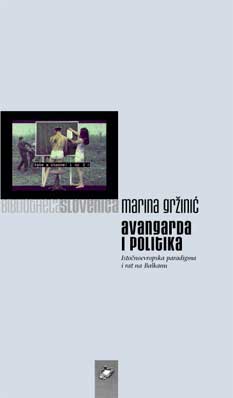
Avangarda i politika
One always searches for some symbolic point from which one can claim that something ended and something else began, even though there are no beginnings and no endings.
More...We kindly inform you that, as long as the subject affiliation of our 300.000+ articles is in progress, you might get unsufficient or no results on your third level or second level search. In this case, please broaden your search criteria.

One always searches for some symbolic point from which one can claim that something ended and something else began, even though there are no beginnings and no endings.
More...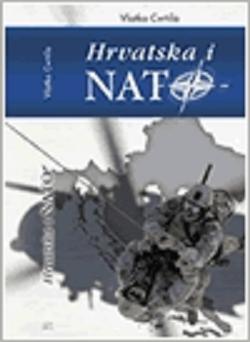
This book delivers a thorough analysis of multiple aspects of NATO involvment in South Eastern Europe and implications for Croatia. It also contains an overview of all positive and negative arguments for Croatia's membership in the NATO
More...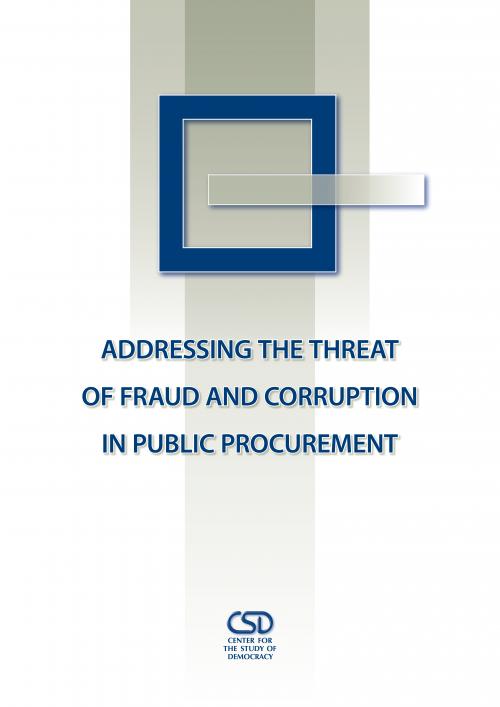
The present compendium of selected best practices addresses the threat of fraud and corruption from multiple perspectives, with the underlying purpose of providing practitioners from Romania and Greece with a set of state of the art approaches for addressing the threat of fraud and corruption in the complex multi-layered national public procurement systems. This publication is based on ideas presented at the international seminar EU's Financial Interests under Threat: New Approaches in Assessing the Risks from Public Procurement and EU Funds Fraud, organised on 31 October – 1 November 2013 in Sofia, with the support of the European AntiFraud Office (OLAF).
More...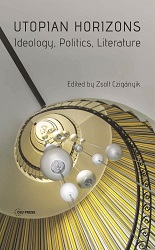
So how far is utopianism part of totalitarianism, or theoretically or causally related to it? This is, clearly, a definitional issue at the outset, and so an assessment of terms is necessary at the outset here. I will then look at a schema of utopian projections before turning to the totalitarian dystopia.My concentration here will be on the now well-grounded hypothesis that utopia has been most prone to produce dystopia when it assumes the shape of a “political religion.” Finally, I will try to modify this hypothesis somewhat by disaggregating the millenarian and other components within supposed “political religions” in order to see what is left once the more destructive elements in modern utopianism have been winnowed out.
More...
In the chapter I wrote for the Cambridge Companion to Utopian Literature,I set out to offer an outline of the history of the concept of utopia by highlighting the way the meaning of the neologism created by Thomas More has changed over the centuries.1 As I evinced then, after its deneologization the concept of utopia underwent several semantic renewals, having been used by different authors to refer to a variety of things. This fluctuation of meaning, I then tried to show, was largely due to the never-ending tension that prevails between the concept of utopia (literally a “nonplace”)and that of eutopia (a “good place”).
More...
In this chapter we examine hybrid political ideas that bridged or even blended allegedly incompatible ideologies and created a new texture. The ideas to be discussed are “anarcho-democracy” and “liberal socialism” in twentieth-century Central Europe. These ideas came close to utopian thinking in that their representative proponents tried to find a non-existent third way between clear-cut models. Instead of hewing to either anarchism or liberal democracy, they tried to figure out a third way solution between the two. Instead of taking sides in the historic debate between liberalism and socialism, they tried to find a new blend, liberal socialism. Therefore it is not unjustified to call them variations of third way, or hybrid, utopianism. Refusing to accept “either/or” solutions, third way thinkers wanted to discover a new road to human paradise that incorporated all the good sides of opposing ideologies and eliminated their negative aspects. In approaching this topic, we suggest that a utopia does not always represent a clear and coherent single idea. On the contrary, a utopian vision might appear as a positive way out of two or more sometimes negative (but often contradicting) perspectives by merging and transcending them.
More...
The present essay focuses on post-9/11 films which present the cataclysm and the post-apocalypse implaced in New York. The central motif analyzed will be the effects of the conjunction of the iconographies of fictional catastrophe and historical trauma, how the September 11 attacks and their aftermath influenced and re-shaped the topicalization and visualization of widespread urban destruction, especially that of Manhattan, and how a narrative of historical trauma intersects and interweaves with narratives of spatial carnage regarded as entertainment.
More...
This essay was written as a contribution to The Paradox of Realism project (National Research, Development and Innovation Office – NKFIH K 117041). George R. R. Martin’s fantasy book series, A Song of Ice and Fire (1996–, followed by the Game of Thrones TV series based on the books, 2011–) was critically acclaimed as a dystopian depiction of a world of dynastic wars, civil discontents, and feudal feuds. Its plot is centered around power hunger, violence, conspiracies, and treachery. Not surprisingly, many reviewers welcomed the series as a textbook example of Machiavellian political realism. Self-contradictory as it may seem, a story of imagined lands, decadelong winters, zombies, magic, and dragons proves to be markedly realistic, at least in comparison with the classics of the fantasy genre, especially J. R. R. Tolkien’s Lord of the Rings trilogy. How can this be possible? If political realism, in a nutshell, is the refutation of the Kantian assertion that “all politics must bend its knee before right,”1 then Tolkien’s novels may justly be described as representing Kant’s ideal, while Martin’s books present us a world where “might is right.” Most of Martin’s characters would readily concur with the crude sincerity of the Athenians recorded in Thucydides’ Peloponnesian War, an unsurpassed classic of realist thinking, that “you know as well as we do that when we are talking on the human plane questions of justice only arise when there is equal power to compel: in terms of practicality the dominant exact what they can and the weak concede what they must.”
More...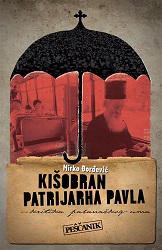
Znamo da honorar od svojih knjiga ostavlja Crkvi, da je stari budilnik zaveštao unuku, ali ne znamo još kome je zaveštao svoj stari kišobran. Godinama smo ga viđali na ulicama sa tim starinskim kišobranom. Budilnik je njega budio za jutrenje, ali nije uspevao da probudi sabraću arhijereje. I sada na sahrani, ko sve nije bio pod kišobranom njegovim – i ko sve godinama pod njim stajao nije. Naravno, ne pod onim starim, već pod onim koji se podrazumeva za ono vlasti što je imao među sabraćom arhijerejima u Sinodu i Saboru. I tu je sva muka njegova, možda i udes njegove misije tokom dvadesetak godina na čelu SPC. Došla je sada da potraži utehu nad odrom i sama “kosovka đevojka” B. Plavšić, koja je sa ratovođama Karadžićem i Mladićem dobar deo Bosne zasejala grobovima. U mučnim godinama raspada države – sa zločinima koji su užasnuli svet – pokojni patrijarh se nije baš snalazio. Izgovarao je opomene, ne da nije, ali sabraća arhijereji, barem dobar deo među njima, nisu krili svoje ratne ciljeve. Ne, ne Isusu mira i pravde, već balkanskom bogu Marsu do crne zemlje su se klanjali. I druge su vodili, i sve nas, do ambisa iz kojeg još izašli nismo. I skoro nećemo.
More...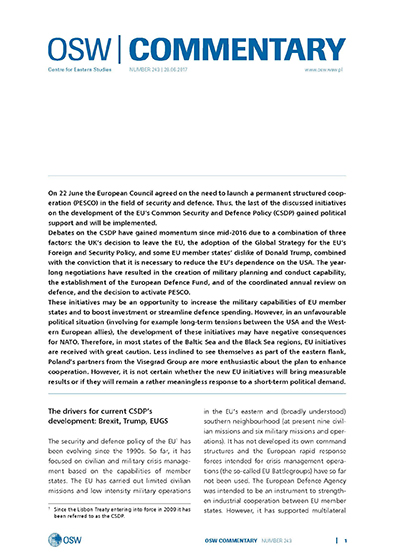
Despite the fact that more than 60 years have passed since the death of Joseph Stalin, the leader of the USSR from 1922 to 1953, the memory of him remains alive. For several years running Stalin has topped the ranking of the most remarkable figures in Russia’s history. Portraits of him appear at political demonstrations and religious events; new monuments to the dictator are erected. The Kremlin’s official rhetoric increasingly refers to the positive aspects of the Soviet era, in particular to the victory in World War II. Representatives of the state’s administration and the Orthodox Church have been making favourable comments about Stalin.
More...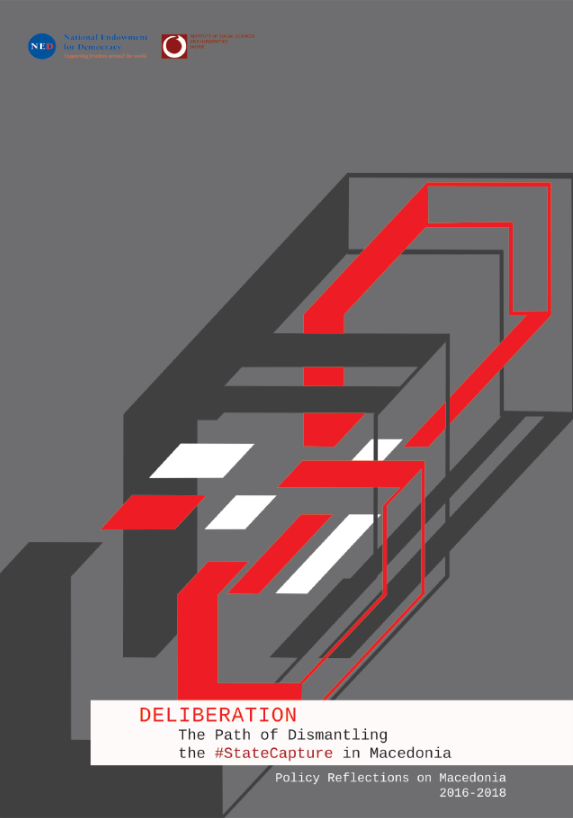
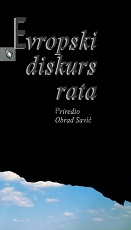
Šmit je 1927. godine obezbedio osnovni kriterijum za procenu međunarodnih odnosa u epohi evropske suverene države, a to je distinkcija između prijatelja i neprijatelja. Njegov kriterijum se takođe smatra ispravnim i u proceni odnosa unutar jedne države, kada sukobi u njoj dostignu tačku građanskog rata. On je procenjivao političke odnose preko jedne uvek-već-prisutne mogućnosti sukoba koji može da se završi smrću. Ograničavajući svoju raspravu o politici na oblast evropske suverene države - ili, grubo rečeno, na period od XVI-XVII veka pa do naših vremena - Šmit je video da međunarodni odnosi tih država u doba mira zavise od izvesnih prihvaćenih »pravila igre«. To, nadalje, ima određene posledice po ponašanje država u ratnim vremenima. Pošto su politički odnosi medu nezavisnim političkim entitetima u doba mira imali različite forme, i pošto ti odnosi nisu uvek bili ograničeni uzajamno prihvaćenim pravilima, to se odražava i na ponašanje takvih država u ratnim vremenima. U sumrak epohe evropske suverene države, Šmitovo objašnjenje treba ponovo razmotriti u svetlu konceptualne distinkcije između neprijatelja i protivnika (enemy i foe).
More...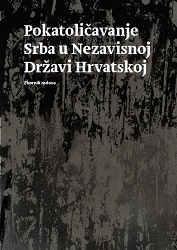
Tema pokatoličavanja srpskog pravoslavnog stanovništva u Nezavisnoj Državi Hrvatskoj predmet je višedecenijskog interesovanja istraživača istorije Jugoslavije tokom Drugog svjetskog rata. Iako su prethodni istraživači svojim istraživanjima obuhvatili mnoge aspekte ove teme, zbornik naučnih radova koji je pred čitaocima predstavlja najobuhvatniji pregled teme na osnovu izvora koje prethodna istoriografija nije konsultovala ili ih nije dovoljno analizirala. Zbornik radova Pokatoličavanje Srba u Nezavisnoj Državi Hrvatskoj sastoji se iz pet naučnih radova. Naučni radovi nastali su kao rezultat istraživanja u osam arhivskih ustanova u Hrvatskoj i Srbiji i pregleda dvadesetak arhivskih fondova. [...]
More...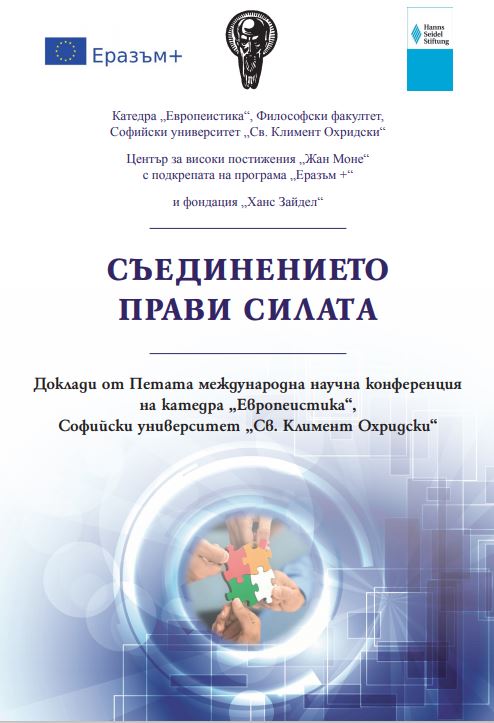
This book presents reports from ‘United We Stand Strong’, the Fifth International Conference of the European Studies Department, Faculty of Philosophy at Sofia University “St. Kliment Ohridski”. The conference was held between 31 May and 1 June 2018 with the support by Hanns Seidel Foundation. The collective book is а result of a project by the European Studies Department at Sofia University “St. Kliment Ohridski”, The Jean Monnet Centre of Excellence in teaching and research on the Europeanisation of the countries of Southeast Europe (2016-2019), co-financed by the Erasmus+ program.
More...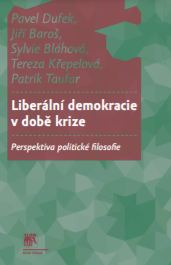
V poslední době došlo v politické teorii ke znovuoživení tázání po poslání a statusu tohoto oboru. Po dlouhých dekádách, v nichž byly cíle a metody této disciplíny považovány za samozřejmé a implicitně sdílené, se naplno projevil nesoulad v náhledech politických teoretiků na svůj vědní obor (Stears 2005). Toto tázání bylo sice podpořeno i obecnějším trendem zabývat se metodologickými otázkami ve filosofii (pro dobré shrnutí viz Cappelen, Gendler a Hawthorne 2016), ale rozproudila je kritika mnoha politických teoretiků směřující do vlastních řad. Agendu politické teorie od počátku 70. let rozhodujícím způsobem ovlivnilo vydání Rawlsovy knihy Teorie spravedlnosti (1971). Právě nespokojenost s „rawlsovským“ způsobem „provozování“ politické teorie dnes naplno vyplula na povrch. Dříve, než se pustíme do rozboru současných debat mezi politickými teoretiky, rád bych ještě poukázal na změnu, kterou vydání Rawlsovy Teorie spravedlnosti pro politickou teorii znamenalo. Bezprostřední úspěch a ocenění, jichž se této knize ze strany širokého publika (nejen politických teoretiků) dostalo, dodaly odvahu a sebevědomí politickým teoretikům, kteří se po vzoru Rawlse snažili o konstruování normativních teorií. Ty se staly jakousi obdobou empirických teorií, které známe z pozitivních věd.
More...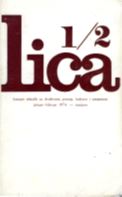
Imperialism is the capitalism in the highest stage of its own development: monopoly capitalism. This is the economic essence of imperialism. Imperialism is "the transition from a capitalist system to a higher socio-economic system", that is transition to a socialist socio-economic order. This is the socio-historical essence of imperialism.
More...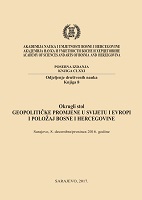
In a classical conceptual discourse, the concept of the state is inseparable from the concept of sovereignty. However, due to globalization processes and influence of global institutions of power, the sovereignty of states is being eroded. The state lost its traditional sovereignty, related to the monopoly of power, stability and safety. Powerful states and their global institutions are using different mechanisms through which they impose their interests and accomplish neoliberal aims that benefit the rich countries, and which contribute not only to impoverishment of states that accept those programs, but also to erosion of their sovereignty. Very strong and intense influence of supranational and transnational instituion calls in question the autonomy, independence, integrity and sovereignty of the states. Sovereignty is eroded and the state is desovereignized.
More...
The main goal of this in depth research analysis is to contribute to the creation of legislative framework in order for Serbia to send its civilian experts in peace support operations. This document offers a comparative legal analyses of the legal frameworks for sending civilians in peace support operations of six European countries: Estonia, Croatia, Slovenia, Czech Republic, Lithuania and Germany. It also provides a short overview and clarification of what the civilian missions are and how they have evolved over time.
More...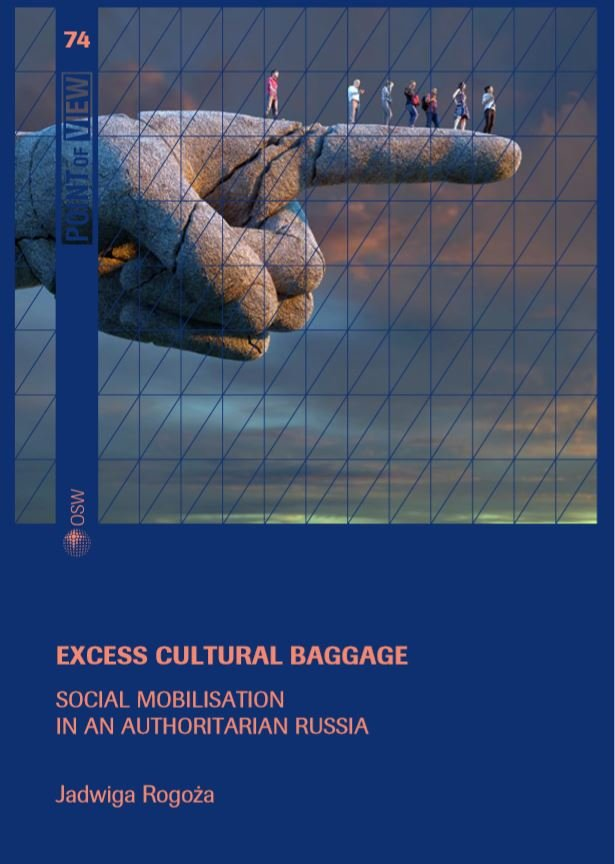
In contemporary Russia, the traditional socio-political culture has left a legacy of conviction that the political leadership, headed by the president, is the only body empowered to act, capable of making decisions and entitled to make them, while society is subordinate to the government and acts as a petitioner appealing to the goodwill of the decision-maker. The conviction that this model is natural for Russia is upheld by an extensive network of actors, both those who deliberately foster the state-centric vision (representatives of the state administration, PR advisors, journalists) and average citizens, teachers, parents, who unknowingly reproduce the view that certain things are a “natural course of events” for Russia. As a result, society’s dissatisfaction with the condition of the state is frequently accompanied by a feeling of powerlessness and disbelief in any change of the present system.
More...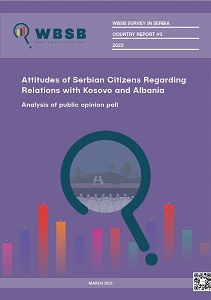
Relations between Serbia and Kosovo are currently reduced to the EU-facilitated talks in Brussels. The long-stalled talks went “back on track” after the appointment of EU Special Representative Miroslav Lajcak. The resumption of the dialogue was influenced by a different US approach to the Balkans following the presidential election and the appointment of Special Envoy Gabriel Escobar. Despite the international community’s strong desire for the leaders of Serbia and Kosovo to return to the negotiating table, it seemed that Serbian President Aleksandar Vučić and Kosovo’s Prime Minister Albin Kurti were unwilling to take a step forward. Their first meeting in June 2021 in Brussels was not encouraging, as it revealed personal animosities that threatened to bring the dialogue to another impasse. With an accession perspective that includes no date, i.e. without a tangible ‘carrot at the end of the stick’, leaders seem less motivated to make bold decisions. The actors were more engaged in the production and management of a crisis than in taking an effort to reach a final solution and progress towards EU membership. All in all, ten years after the dialogue began, there is little room for optimism as relations between Serbia and Kosovo are now at their lowest level. Many agreements have not been fully implemented, while the implementation of Brussels’ provisions concerning the association of Serb-majority municipalities is still pending.
More...